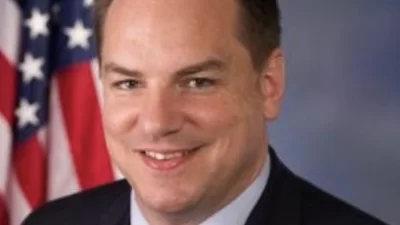Dear Mr. Secretary:
Almost seven months ago, on Oct. 25, 2006, I was one of six members of Congress to write you about what we called the “misleading and biased view of Medicare coverage and options" contained in the Medicare & You 2007 Handbook. Today I write again to express similar concerns about biased and inappropriate discussion of Medicare Advantage (MA) by the Centers for Medicare & Medicaid Services (CMS).
It has come to my attention that Acting CMS Administrator Leslie V. Norwalk and Center for Beneficiary Choices Director Abby L. Block held a “pen and pad" briefing for members of the press Monday. The stated purpose of the briefing was to provide background in advance of Tuesday’s House Committee on Ways and Means Health Subcommittee Hearing on Medicare Advantage Private Fee-For-Service Plans.
CMS’ documents warn that “access to benefits is at stake if Medicare Advantage funding is cut." These documents misled the public by not explaining that 1) MA plans, not Congress, ultimately determine the level of “extra" benefits depending on how efficiently they can provide the Medicare benefit package, and 2) only the “extra" benefits afforded through the MA program could be affected, not standard Medicare benefits. I am concerned that CMS chose to allocate agency resources and staff time to publicly advocate against payment changes in the MA program, rather than use those same resources to better monitor and regulate the conduct of MA plans.
I find it inappropriate that CMS, or any executive branch agency, would lobby in response to anticipated congressional action. State-level MA information was shared with the press, but not offered to members of Congress or their staffs in advance of Monday’s press event. Monday’s activities are not consistent with the role of CMS as a regulator and steward of the Medicare program. The Finance Committee has yet to consider legislation to reduce MA funding, making the preemptive nature of CMS’ action that much more unseemly.
Lobbyists get paid to advocate on behalf of their clients, and they can play a role in the legislative process. Executive branch agencies, however, should not lobby publicly in favor of, or in opposition to, congressional proposals. The appropriate advocacy process available to agencies is to issue a Statement of Administration Policy through the White House. As the Finance Committee contemplates changes to Medicare to make it work better for seniors and the American taxpayer, I would welcome technical assistance from CMS, particularly with respect to the effects of policy proposals. This exchange should not be conducted through the press or information posted on the CMS website.
Congressional interest in MA, and private fee-for-service plans in particular, stems from our constitutionally-envisioned responsibility to oversee the executive branch. We have an obligation to monitor federal programs, of which Medicare is among the largest, most complex and susceptible to fraud. That is why I invited Ms. Block to testify before me and the Committee on Finance two weeks ago. What I do not understand is how you could allow CMS to champion MA, especially in light of concerns that have arisen in Congress and the popular press about CMS’ effectiveness in monitoring and regulating the plan industry.
As you know, Medicare is a vital program for over 43 million Americans. As I wrote last October, “people with Medicare deserve balanced information so they can make well-informed choices among the options that Congress has made available to them through the Medicare program."
Thank you for your prompt attention to this matter.
Sincerely,
Max Baucus Chairman
Source: Ranking Member’s News









